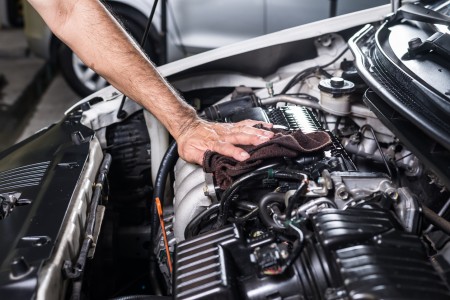Unless you know a lot about how your car works, an unscrupulous auto repair shop could take you for a ride.
Some auto repair scams can be seen as simple mistakes, while others can cost you time, money and leave your car unsafe to drive. Here are some auto repair scams to look out for:
The upsell: Taking your car in for a routine oil change is a good time for an auto mechanic to upsell other services that you may not need. Replacing coolant in the radiator may be offered, even though it may not be needed until you hit 100,000 miles. If you came in for one problem and more work is recommended, then go somewhere else for a second opinion.
Engine flush: A $200 engine flush is a waste of money unless you’ve neglected your engine and don’t change the oil when needed. An engine flush gets rid of sludge in an engine, which normal maintenance should prevent.
New parts that are used: Ask to see any new parts before they’re installed so that an auto shop doesn’t try to pass off used parts as new. They should be brand-name parts approved by the manufacturer, called Original Equipment Manufacturer, or OEM, parts.
Frequent oil changes. Getting regular oil changes every 3,000 miles used to be the norm. Cars don’t need oil changes as often, and most manufacturers recommend 5,000 miles. Check your owner’s manual for details.
Dirty air filter isn’t yours: A mechanic may bring out a dirty air filter to show you that isn’t from your car, but is kept to trick unsuspecting customers. Always make sure the filter you’re seeing is from your car, and know when your filters need replacement.
Dirty fuel injectors. An old part may also be used in this scam, where a mechanic will show you a dirty air filter that isn’t yours and tell you that fuel injectors need to be cleaned every 15,000 or 20,000 miles. In fact, gasoline contains detergent to keep fuel injectors clean, and most owner’s manuals recommend fuel injector replacement between 50,000 and 100,000 miles.
Always get a written estimate before getting work done on your vehicle, and don’t pay for work that is done without your approval. If you can avoid these auto repair scams, you’ll be ahead of the game.











